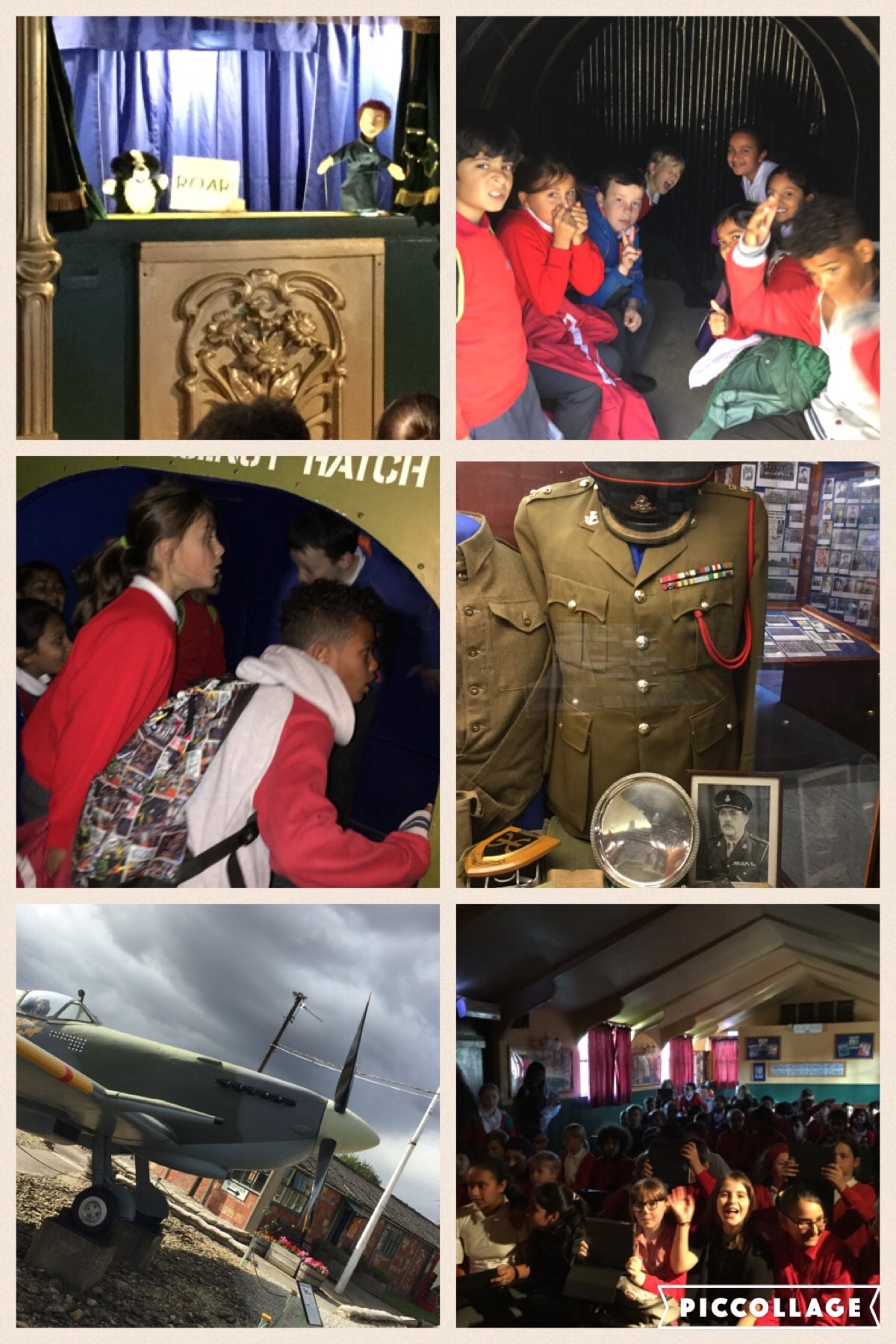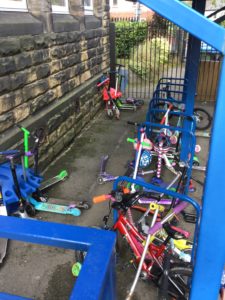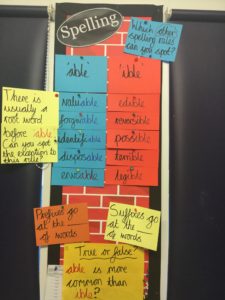Improving your child’s reading skills
The Department for Education recently released measures showing how children have progressed from Key Stage 1 to Key Stage 2. Expected progress is zero, with anything above that being better than expected and negative numbers showing less than expected progress. Overall, we’re happy that Moortown’s progress remains better than many schools. In Writing and in Maths, the progress measure is 1.4 and 2.0 – this is really quite secure progress.
In Reading this year, progress was also positive, but by less than Writing and Maths: 0.3 – a little above the expected level. We’d like it to be higher. We think the Reading test was extremely hard this year – something widely reported and commented on in the media and social media. It also raises the importance of reading and discussing what is being read at home. Some of our children struggled for three main reasons:
Some children struggled to read the whole text. This flags up how important regular reading at home is to build up fluency.
Others struggled with how difficult the texts were to read. One was an extract from a newspaper, whose intended audience is adults, not 11 year olds! This flags up the importance of encouraging your child to read often, and to read a variety of texts, from fiction to non-fiction, comics to newspapers (but always prioritise reading for pleasure – far more important than a snapshot of reading skills that is the SATs test).
Third, the actual test questions were tough. They testing children’s knowledge of quite tricky words and ability to infer ‘impressions’, a word used more than once in the test. Teachers always encourage parents and carers to be listening to their child read and talking about what is being read, even when a child is quite a fluent reader.
For your awareness, here are a couple of questions from the test, about warthogs and dodos:
“…milled around in bewilderment” (page 8) Explain what this description suggests about the baby warthogs.
What does “rehabilitate the image of the dodo” mean? Tick one. a) restore a painting of the dodo b) rebuild the reputation of the dodo c) repair a model of the dodo d) review accounts of the dodo
Some of the words and phrases used in the texts included ancestors, impressions, inscription, ‘parted company’, ‘offered themselves up’, oasis and parched – not impossibly hard to work out, but perhaps a step up from what your child might be reading at home.
(It’s not all about a Year 6 test, though! Previous news posts have noted that research shows children who read lots develop into adults with greater social and emotional skills.)
Local press
Our new multi-use games area (MUGA) featured in the Yorkshire Evening Post this week.

Eden Camp
Year 5 and 6 had an amazing day learning all about WW2 at Eden Camp today.
We learnt loads of new things and had a blast going back in time. We saw weapons, planes, medals, submarines and even experienced what it was like to be involved in the blitz!
Ask your child about their day and quiz them about all their learning. I wonder what their favourite parts of the day were?

Also, on behalf of all the staff, may I thank Mrs Gibbins and Mrs Sykes for volunteering to come along with us today – we wouldn’t have had enough adults to make the trip possible without parental help. Sure you had fun, too!
Scoot the Route
We’ve had a great response to the Scoot the Route scooter promotion this week with lots of names in the draw for one of our five prizes tomorrow. There is one more chance tomorrow.

We’d love to see the children continue to use their scooters, alongside walking and biking to school, to prevent congestion, improve safety and have a happy, healthy and active start to the day!
30 September 2016
The homework this week is Talk Time and will be discussed on Thursday 06 October.
I understand how someone else feels.
For this homework, children should discuss this statement with others at home.
They should consider:
- What are the different emotions someone might feel? How many can you name? When/why might someone feel that way?
- How would you know how someone else is feeling? What does their face look like? What does their body look like?
- What could you do if you see someone showing certain emotions? For example, loneliness, anger, confusion or worry.
In our SEAL lesson this week, we considered how someone else might feel through the book, Beegu.
Children should be prepared to share their ideas.
Spelling!
As always, we continue to place a huge emphasis on spelling in Year 5. We are currently focusing on words ending in ‘able‘ and ‘ible‘ – which are suffixes.
Spelling is a vital part of a writer’s toolkit; wivout acurate speling, reeders can strugle too make cents of hour ideas. Often, people accept that they are simply ‘a bad speller’. This is not the case as spelling can be improved like any skill in life.
It would be great if you could help at home by continuing to focus on helping your child learn their spellings well. In addition, discuss spelling as often as you can. When your child sees a new word ask them what spelling rule they can identify (or is the word an exception to the rule?).
Check out our spelling display in the picture below. Even better, discuss it with your child and answer the questions/fill in the blanks.

30 September 2016
For Mathletics homework, each child has been assigned two tasks from MULTIPLY AND DIVIDE WRITTEN.
- Everyone has been assigned ‘Short Division’.
- Some children have been assigned ‘Long Multiplication’.
- Some children have been assigned ‘Multiply 2-Digit Number regroup’.
This work will allow the children to practise skills we’ve been revising this week on multiplication and get a head start on division which we’ll be moving on to next week.
These task should be completed by Thursday 06 October. As always, let me know if there are any difficulties before Thursday and I’ll do what I can to help.
30 September 2016
This week’s homework is Practice Makes Perfect and is due on Thursday 06 October.
Write 10 sentences about your trip to Eden Camp using a range of openers – think about what else you could show off, too.
There’ll be pictures of our trip up on Y6 Class News to remind you of what we did and what you saw. Write ten sentences, making sure you’re using a range of openers – which is your writing target.
Although I want you to focus on openers, think about whether you can show off or practise any other skills too:
- middlers and enders
- punctuation (; : – )
- expanded noun phrases
- adverbial phrases
30 September 2016
This week, your spelling activity is to explore what happens to the following words when you add a suffix. See how many suffixes you can add and find out what it does to the spelling – it’s not always the same pattern.
- refer
- transfer
- prefer
Don’t forget, the research you do and words you find must be recorded in your homework book on your spellings page.
Yorkshire’s Rio Heroes
Welcome back Yorkshire’s Olympic and Paralympic athletes with a special homecoming parade! On Wednesday 28 September, a carnival atmosphere will take hold of Leeds as the athletes are welcomed home in true Yorkshire style.


A host of athletes have confirmed their attendance, including triathletes Alistair and Jonny Brownlee; World, European and Paralympic champion Hannah Cockroft, MBE; diver and gold medallist Jack Laugher; and rowers Andy Triggs Hodge and Paul Bennett who both claimed gold.
There will be a lively parade, with samba bands, brass bands, colourful performers and of course open top buses and vehicles carrying the athletes. Parade celebrations will start at 5.15pm, and we would love to see the people of Yorkshire come out in force to line the city centre route and cheer on these inspiring men and women.